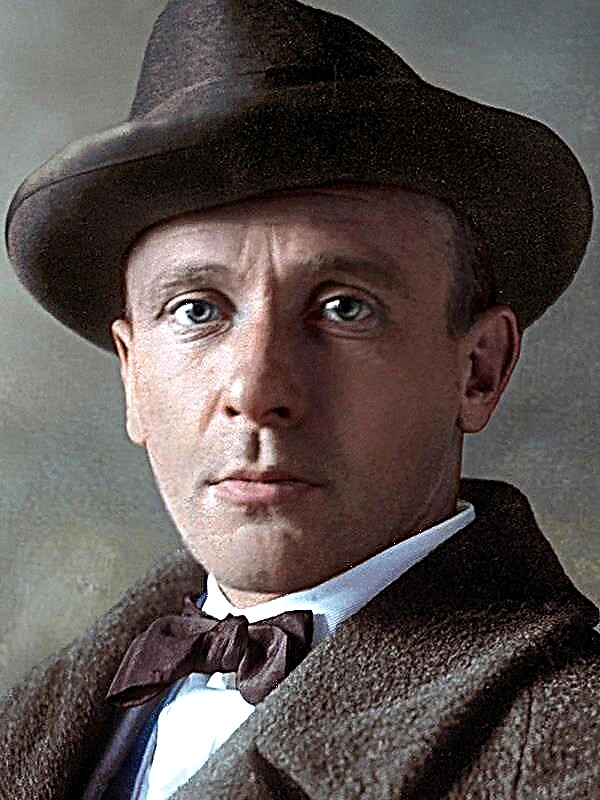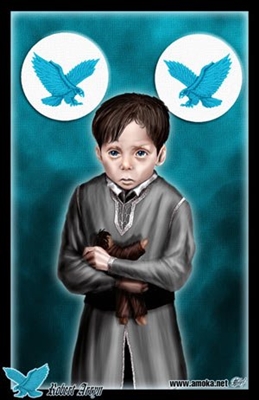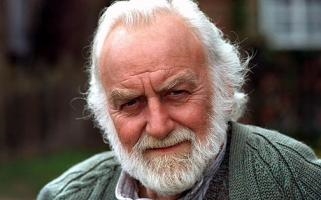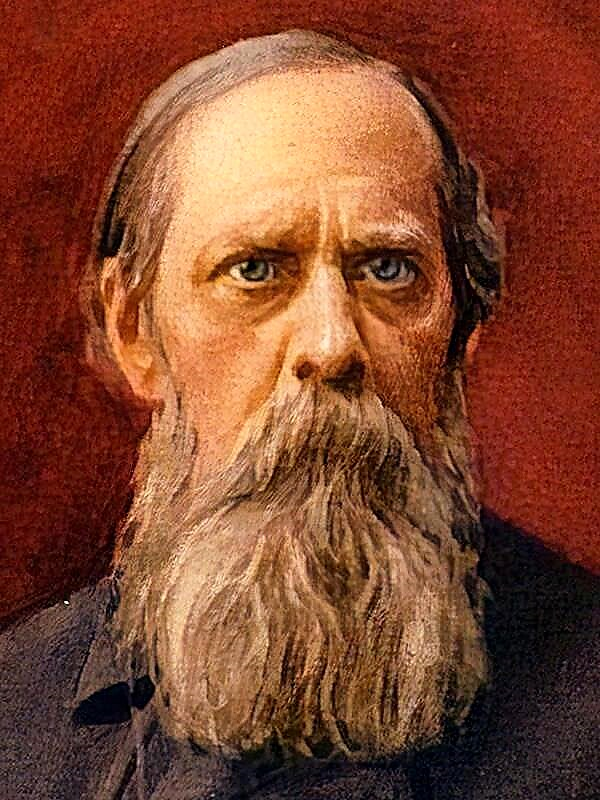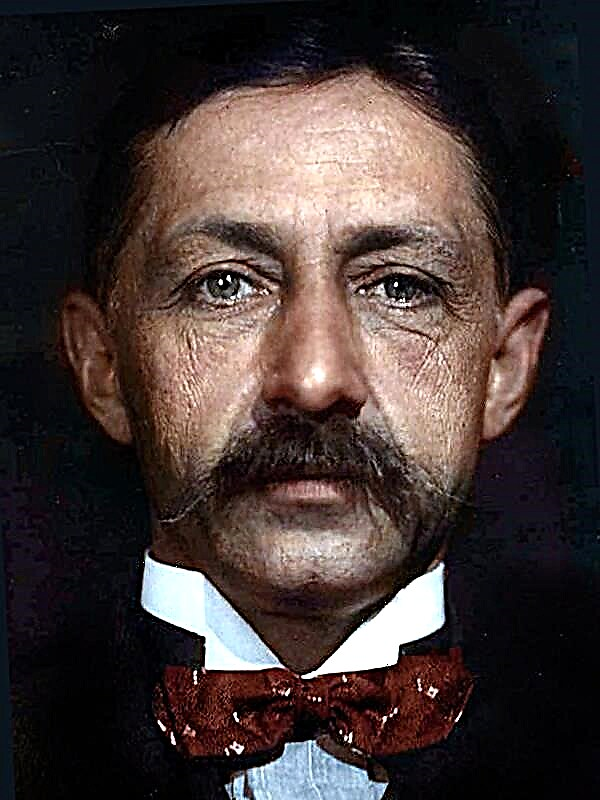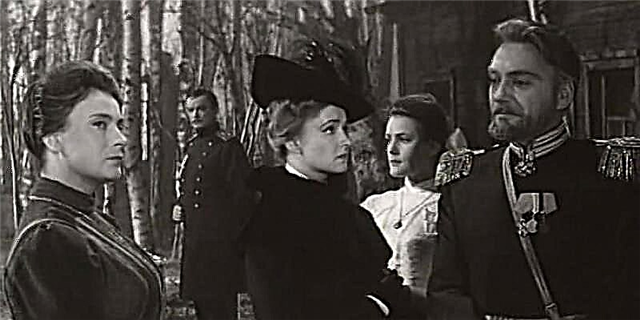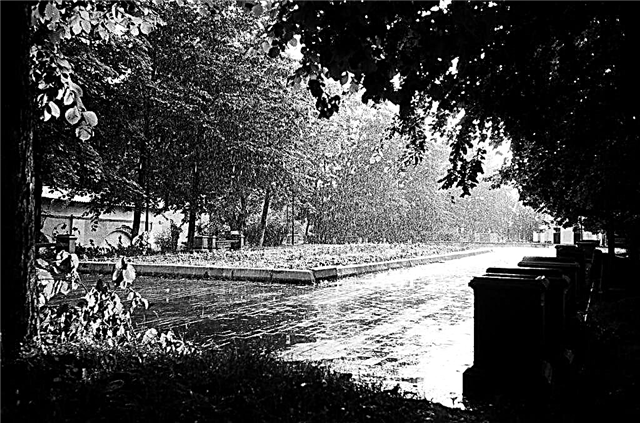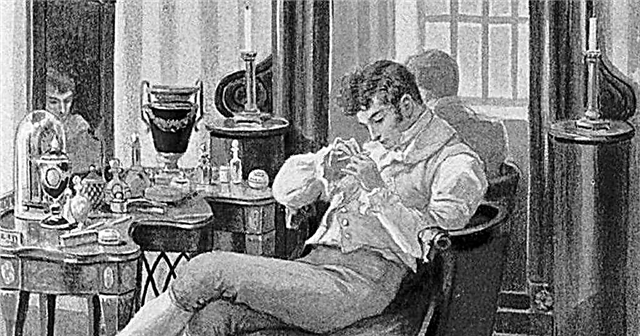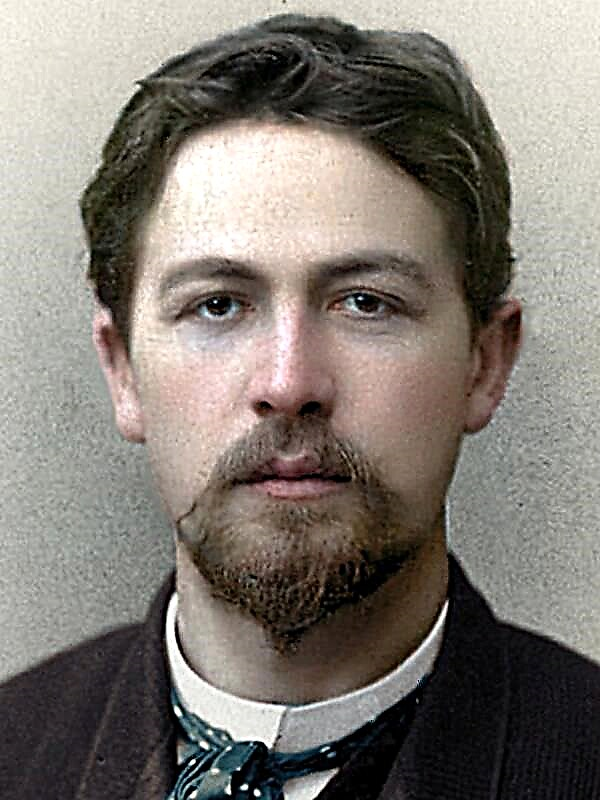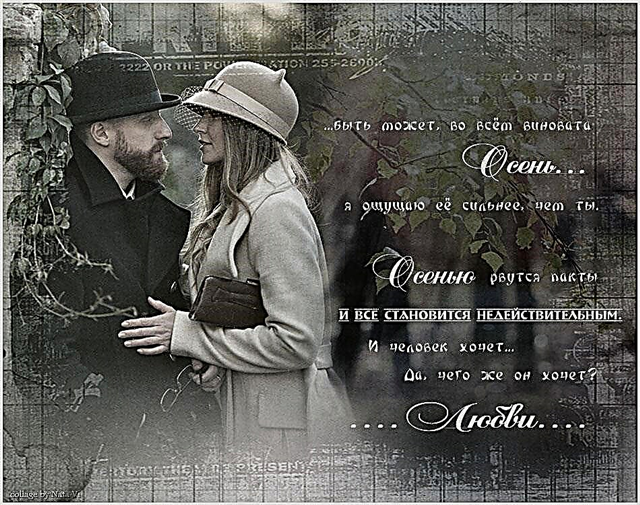The sovereign emperor of the Franks, the great Charles (the same Charles, on whose behalf the very word "king" occurs), has been fighting the Moors in beautiful Spain for seven long years. He has won many Spanish castles from the wicked. His faithful army defeated all the towers and conquered all the cities. Only the ruler of Zaragoza, King Marsilius, the godless servant of Muhammad, did not want to recognize the rule of Charles. But soon the proud lord Marsilius will fall and Zaragoza will bow the chapter before the glorious emperor.
Tsar Marsilius convenes his faithful Saracens and asks them for advice on how to avoid reprisals against Karl, the ruler of beautiful France. The wisest of the Moors keep silence, and only one of them, the Val-Fond castellan, did not remain silent. Blankandrin (as the Moor was called) advises by deceit to achieve peace with Karl. Marsilius must send messengers with great gifts and with an oath of friendship, he promises Carl on behalf of his sovereign loyalty. The ambassador will deliver seven hundred camels to the emperor, four hundred mules laden with Arab gold and silver, so that Karl could reward his vassals with rich gifts and pay mercenaries. When Karl, with great gifts, sets off on his return journey, let Marsilius vow to follow Karl in a short time, and on the day of St. Michael to adopt Christianity in Aachen, the royal city of Karl. The hostages will be sent to Karl the children of the noble Saracens, although it is clear that he was destined to die when the treachery of Marsilius was revealed. The French will leave home, and only in Aachen Cathedral Powerful Karl on the great day of St. Michael will understand that he will be deceived by the Moors, but it will be too late to take revenge. Let the hostages better perish, but King Marsilius will not lose the throne.
Marsilius agrees with Blankandrin’s advice and equips ambassadors to Karl, promising them rich service for their loyal service. The ambassadors pick up the olive branch as a sign of friendship with the king and set off.
Meanwhile, the mighty Karl celebrates the victory over Cordoba in the fruitful garden. Around him sit vassals, play dice and chess.
Having come to the camp of the Franks, the Moors see Karl on a golden throne, the king’s face is proud and beautiful, his beard is whiter than snow, and his curls fall in waves on his shoulders. Ambassadors greet the emperor. They state everything that Marsilius, king of the Moors, ordered them to transmit. Karl listens attentively to the messengers and, dropping his brow, plunges into meditation.
The sun shines brightly over the camp of the Franks when Karl convenes his associates. Karl wants to know what the barons think, whether it is possible to believe the words of Marsilius, who promises to obey the Franks in everything. The barons, tired of long campaigns and heavy battles, wish a speedy return to their native lands, where their beautiful wives are waiting. But no one can advise this to Karl, since each of them knows about the insidiousness of Marsilius. And everyone is silent. Only one, the king’s nephew, the young Count Roland, speaking from the ranks of his close associates, begins to persuade Charles not to believe the words of the lying king of the Moors. Roland reminds the king of the recent betrayal of Marsilius, when he also promised to faithfully serve the Franks, and he broke his promise and betrayed Karl, killing his ambassadors, the glorious counts of Bazan and Basil. Roland begs his lord as soon as possible to go to the walls of the rebellious Zaragoza and avenge Marsily for the death of glorious warriors. Karl drops his brow, an ominous silence ensues. Not all barons are happy with the offer of young Roland. Count Ganelon comes forward and delivers a speech to the audience. He convinces everyone that Karl’s army is already tired, and so much has been won that you can proudly strive for the return journey to the borders of beautiful France. There is no reason not to believe the Moors; they have no choice but to obey Karl.Another baron, Nemon of Bavaria, one of the king’s best vassals, advises Karl to listen to the speeches of Ganelon and to listen to the prayers of Marsilius. The count claims that Christian duty tells us to forgive the infidels and turn them to God, and there is no doubt that the Moors will arrive on St. Michael's Day in Aachen. Karl turns to the barons with the question of whom to send to Zaragoza with the answer. Count Roland is ready to go to the Moors, although his advice is rejected by the master. Karl refuses to let go of his beloved nephew, to whom he owes many victories. Then Nemon of Bavaria eagerly offers to take the message, but Karl also does not want to let it go. Many barons, in order to prove their loyalty, want to hit the road, only Count Ganelon is silent. Then Roland calls out to Karl the advice: “Let Ganelon ride.” Count Ganelon gets up frightened and looks at the crowd, but all nod their heads in agreement. The insane count threatens Roland with long-standing hatred of him, as he is Roland's stepfather. Roland, says Ganelon, has long wanted to destroy him, and now, taking advantage of the opportunity, he is sending for certain death. Ganelon begs Karl not to forget his wife and children when the Moors will certainly kill him. Ganelon laments that he will no longer see his native France. Karl is furious with the indecision of the count and orders him to go on the road immediately. The emperor hands Ganelon his glove as a sign of embassy authority, but he drops it to the ground. The French understand that it was only on themselves on the mountain that they decided to send the insidious Ganelon with the embassy to the enemies, this mistake will bring them great grief, but no one can change their fate.
Count Ganelon retires to his tent and selects battle armor, preparing to go. Not far from the camp of the Franks, Ganelon catches up with the returning embassy of the infidels, whom the cunning Blankandrin held up with Karl for as long as possible in order to meet with the emperor's envoy on the way. A long conversation begins between Ganelon and Blankandrin, from which the Moor finds out about the feud between Ganelon and Karl Roland's favorite. Blankandrin inquires in surprise from the count why all the Franks love Roland so much. Then Ganelon reveals to him the secret of the great victories of Karl in Spain: the fact is that Karl’s troops are leading the valiant Roland in all the battles. Ganelon erects a lot of untruths on Roland, and when the embassy's path reaches the middle, the treacherous Ganelon and the cunning Blankandrin swear to each other to destroy the mighty Roland.
A day passes, and Ganelon is already at the walls of Zaragoza, he is led to the king of the Moors, Marsilius. Bowing to the king, Ganelon gives him the message of Charles. Karl agrees with the world to go within his limits, but on St. Michael's day he waits for Marsilius in the throne of Aachen, and if the Saracen dares to disobey, he will be delivered in chains to Aachen and put to shameful death there. Marsilius, who did not expect such a sharp answer, grabs a spear, wanting to defeat the count, but Ganelon dodges the blow and steps aside. Then Blankandrin turns to Marsilius with a request to hear the Ambassador of the Franks. Ganelon again approaches the lord of the infidels and continues his speech. He says that the king’s anger is in vain, Karl only wants Marsilios to accept the law of Christ, then he will give him half of Spain. But Karl will give the other half, continues the traitor, to his nephew, the puffy Earl of Roland. Roland will be a bad neighbor to the Moors; he will seize neighboring lands and in every way oppress Marsilia. All the troubles of Spain are from Roland alone, and if Marsilius wants peace in his country, then he must not only obey Carl, but also by cunning or deceit to destroy his nephew, Roland. Marsilius is glad of such a plan, but he does not know how to deal with Roland, and asks Ganelon to come up with a remedy. If they succeed in destroying Roland, Marsilius promises the count for loyal service rich gifts and castles of beautiful Spain.
Ganelon’s plan has long been ready, he knows for sure that Karl will want to leave someone in Spain to ensure peace on the conquered land. Karl will undoubtedly ask Roland to stay on guard, he will have a very small detachment, and in the gorge (the king will be far away) Marsily will beat Roland, depriving Karl of the best vassal. This plan appeals to Marsilius, he calls Guenelon to his chambers and orders to bring there expensive gifts, the best furs and jewelry that a new royal friend will take to his wife in distant France. Soon, Ganelon escorted back, as if agreeing on the implementation of the plan. Each noble Moor swears friendship to the Frank traitor and sends his children hostage to Carl.
Earl Ganelon at dawn drives up to the camp of the Franks and immediately passes to Carl. He brought the master many gifts and brought hostages, but most importantly, Marsilius handed over the keys to Zaragoza. Rejoicing the Franks, Karl ordered everyone to gather to say: “The end of the war is brutal. We are going home. ” But Karl does not want to leave Spain without protection. Otherwise, he will not even have time to get to France, as the Basurmans will again raise their heads, then everything will come to an end that the Franks achieved during the seven long years of the war. Count Ganelon tells the emperor to leave Roland on guard in the gorge with a detachment of brave warriors, they will stand up for the Franks honor if anyone dares to go against Karl’s will. Roland, having heard that Ganelon advises Karl to choose him, hurries to the overlord and addresses him. He thanks the emperor for the errand and says that he is glad for such an appointment and is not afraid, unlike Ganelon, of dying for France and Karl, even if the lord wants to put him alone on guard in the gorge. Karl drops his brow and, covering his face with his hands, suddenly begins to sob. He does not want to part with Roland, a bitter foreboding gnaws at the emperor. But Roland is already gathering friends who will stay with him when Karl withdraws his troops. With him will be the valiant Gauthier, Odon, Jerin, Archbishop Turpin and the glorious hero Olivier.
Karl leaves Spain with tears and goodbye gives Roland his bow. He knows that they are no longer destined to meet. The traitor Ganelon is guilty of the troubles that befall the Franks and their emperor.
Roland, having gathered his army, descends into the gorge. He hears the thunder of the drums and watches his eyes as they leave for their homeland. Time passes, Karl is already far away, Roland and Count Olivier climb a high hill and see hordes of Saracens. Olivier accuses Ganelon of betrayal and begs Roland to blow a horn. Karl can still hear the call and turn the troops. But the proud Roland does not want help and asks the soldiers to fearlessly go into battle and win: "God bless you, the French!"
Once again, Olivier rises to the hill and sees already very close the Moors, whose hordes all arrive. He again begs Roland to blow, so that Karl hears their call and turns back. Roland again refuses shameful insanity. Time passes, and the third time Olivier at the sight of the troops Marsilia falls to his knees in front of Roland and asks not to kill people in vain, because they can not cope with the hordes of Saracens. Roland does not want to hear anything, is building an army and rushing into battle with the cry "Monjoj". In a fierce battle, the French and the forces of the cunning Marsilius came together.
An hour passes, the French chopped the infidels, only screams and the sound of weapons are heard over a deaf gorge. Count Olivier rushes across the field with a fragment of a spear, he hits the Moor of Malzaron, followed by Turgis, Estorgot. Count Olivier has already hit seven hundred infidels. The battle is getting hotter ... The brutal blows are smashed by the Franks and Saracens, but the Franks have no fresh strength, and the pressure of the enemies is not weakening.
Marsilius rushes from Zaragoza with a huge army, he longs for a meeting with Karl's nephew, Count Roland. Roland sees Marsilius approaching and only now finally understands the vile betrayal of his stepfather.
The fight is terrifying, Roland sees young Franks dying, and in repentance rushes to Olivier, he wants to blow the horn. But Olivier only says that it’s too late to call for Carl’s help, now the emperor will not help, he is rushing into battle. Roland blows ... Roland's mouth is covered with bloody foam, the veins at the temples have opened, and a lingering sound is far away.
Having reached the border of France, Karl hears Roland's horn, he realizes that his forebodings were not in vain. The emperor deploys troops and rushes to the aid of his nephew. Karl is getting closer and closer to the place of the bloody battle, but he will no longer find anyone alive.
Roland looks at the mountains and plains ... Death and blood are everywhere, the French are everywhere, the hero falls to the ground in bitter sobs.
Time passes, Roland returned to the battlefield, he hits the shoulder, cut Faldron, many noble Moors, the terrible revenge of Roland for the death of soldiers and for the betrayal of Ganelon. On the battlefield, he encounters Marsilius, the king of all of Zaragoza, and his arm is cut off, the prince and son Marsilios dumped his horse with a damask sword and stabbed it with a spear. Marsilius takes flight in dismay, but this will not help him: Karl’s troops are too close.
It was twilight. One caliph on a horse flies up to Olivier and hits him in the back with a damask spear. Roland looks at Count Olivier and realizes that a friend is killed. He looks with his gaze to the archbishop, but there is no one nearby, the army is broken, the day has come to an end, bringing death to the valiant Franks.
Roland is walking alone along the battlefield, he feels that the forces have left him, his face is covered with blood, his beautiful eyes have faded, he does not see anything. The hero falls on the grass, closes his eyes, and the last time he sees the image of France beautiful. Time passes, and the Spanish Moor crept up to him in darkness and dishonoredly struck. A mighty knight is killed, and no one will ever raise the beautiful Durandal (that was the name of Roland's sword), no one will replace the incomparable warrior to the Franks. Lies Roland facing enemies under the canopy of spruce. Here at dawn he finds his army of Charles. The sovereign emperor falls to his knees in front of his nephew’s body and promises to avenge him.
Hurry troops rather on the road to catch up with the Moors and give the last battle filthy.
Wounded Marsilius escapes from the wrath of the emperor in the capital, in Zaragoza. He hears the victorious cry of the French who entered the city. Marsily asks for the help of his neighbors, but everyone in dismay turned away from him, only the Baligant was ready to help. His troops came together with the troops of Charles, but the Franks quickly defeated them, leaving the Saracens to lie on the battlefield. Karl returns to his homeland to piously bury the bodies of the heroes and complete a fair trial of the traitors.
All France mourns the great warriors, there is no longer the glorious Roland, and without him the Franks do not have happiness. All require the execution of the traitor Ganelon and all his relatives. But Karl does not want to execute the vassal without giving him a word in his defense. The day of the great judgment has come; Karl calls for a traitor. Then one of the glorious Franks, Tiedry, asks Karl to arrange a duel between him and Ganelon's relative, Pinabel. If Tiedri wins, Ganelon will be executed; if not, he will live.
The mighty Tiedri came together on the battlefield and Pinabel the invincible, raising their swords, rushed into battle. The heroes fight for a long time, but neither one nor the other is given victory. Fate decreed that the last time the wounded Tjedry raised his sword above Pinabel’s head, he, amazed, fell to the ground dead and no longer woke up. The emperor’s court was accomplished; warriors are tied to Ganelon’s horses and hands, and they are driven to the water. The traitor Ganelon experienced terrible torment. But what death will atone for the death of the beautiful Roland ... Bitterly, Karl mourns his beloved vassal.

